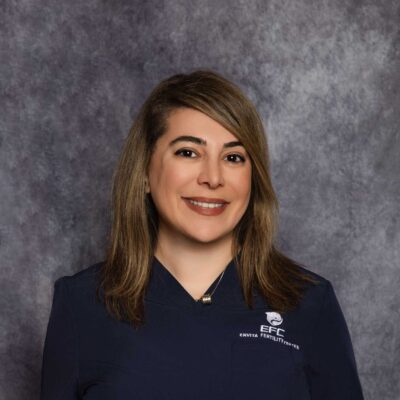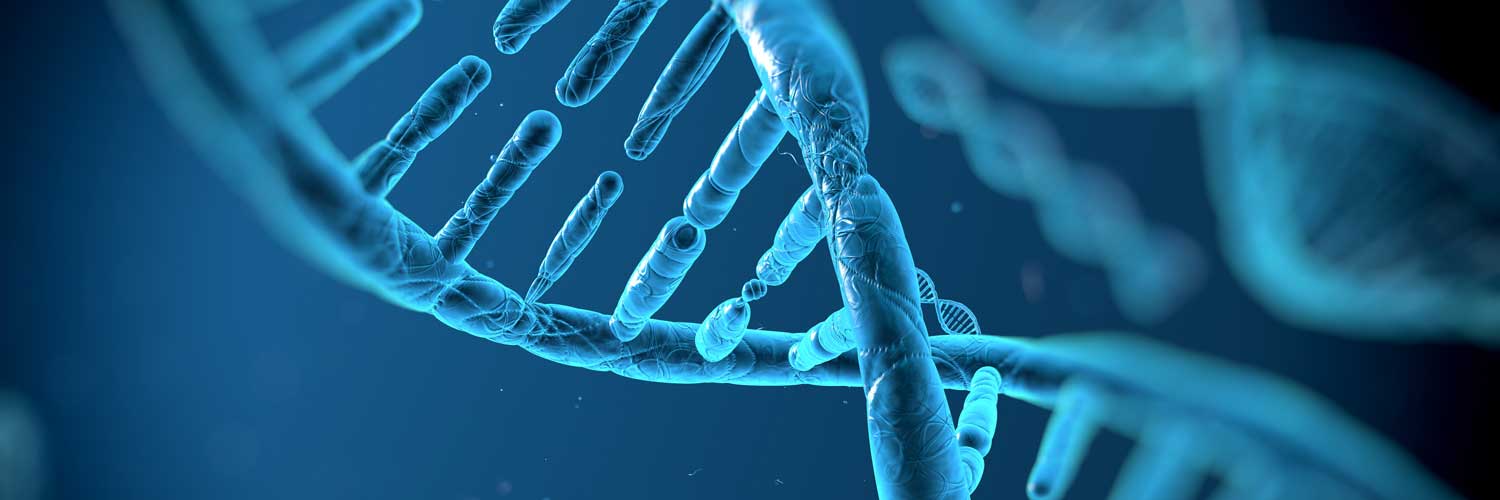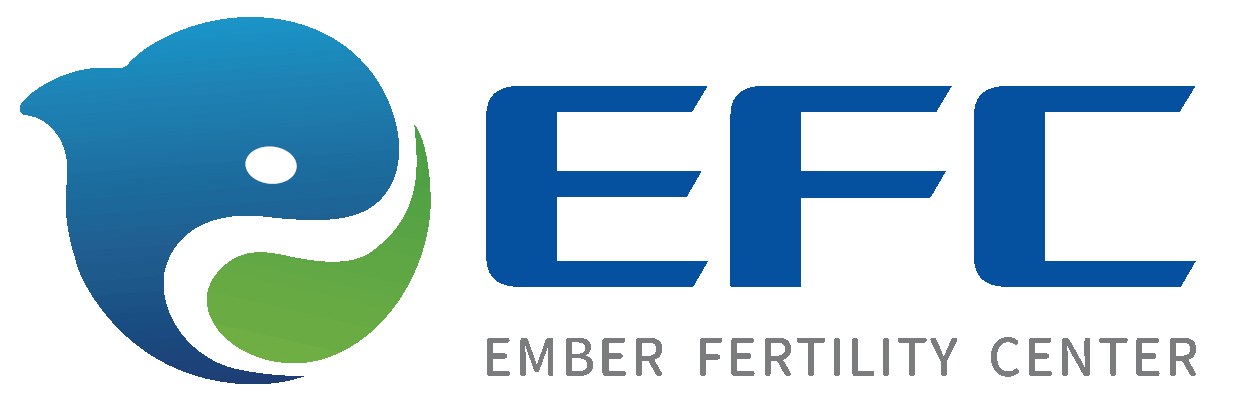Board-certified embryology lab director
Ember Fertility Center lab & scientific director, senior embryologist

Certifications
- High-Complexity Clinical Lab Director (HCLD) certification from American Association of Bioanalysts (ABB)
- Technical Supervisor (TS) certification from ABB
- Embryology Laboratory Scientist (ELS) certification from ABB
California license: Reproductive Biology Scientist Director
As of 2025, Dr. Asemi is one of the first professionals to earn this special license that sets a new regulatory and professional standard for fertility care both clinically and in the lab. It supports better patient outcomes and emphasizes scientific leadership, accountability, quality, safety and ethical practice. This historic milestone underscores Dr. Asemi’s and EFC’s commitment to excellence, credibility and trustworthiness.
Fertility lab specialties
- Embryology and andrology laboratories
- Intracytoplasmic sperm injection (ICSI)
- Laser assisted PGT trophectoderm biopsy
- Clinical Laboratory Improvement Amendments (CLIA), Food and Drug Administration (FDA) and College of American Pathologists (CAP) regulations and inspections
- Establishing high standards and getting results
- Embryology and Andrology Labs startups, leadership development, forecast thinking and critical thinker
- Junior Embryologist training
Connect with Ember Fertility
Although Dr. Avisa Asemi has worked successfully for several years at larger clinics that could see up to 5,000 annual patient cases, performing upwards of 20 egg retrievals and dozens of ICSI procedures or biopsies per day, this overtaxing schedule increases the probability for a lab team to make mistakes and makes it difficult to dedicate time and attention wherever it’s needed.
At Ember Fertility Center the nurses and staff know each patient’s name and are familiar with their infertility history, allowing them to connect better with patients, helping patients feel happy, comfortable and right at home.
Dr. Asemi’s and Ember Fertility Center’s pledge to our fertility patients
We pledge to provide inclusive fertility services and a dynamic, connected experience through dedication, commitment and focus on each individual patient.
Dr. Asemi’s has more than 20 years of experience as a board certified lab director and senior embryologist, her prestigious education, and Ember’s modern state of the ART (assisted reproductive technologies) embryology and andrology laboratories support Dr. Asemi’s goal of delivering personalized treatment, unparalleled expertise and cutting-edge technology.
About Dr. Avisa Asemi
Ember Fertility Center’s on-site lab director Dr. Avisa Asemi has more than 20 years of experience as a board certified lab director, scientific director, team leader and senior embryologist in the best-known fertility centers in U.S., Canada and worldwide. Her impressive resume includes Stanford University’s Fertility & Reproductive Health Center and the University of Miami Miller School of Medicine, Reproductive Medicine Associates Of Northern California, Shady Grove Fertility Center, Northern California Fertility Center, Boca Fertility, and Markam Fertility Center, among other notable postings.
Dr. Asemi has successful directed several embryology and andrology labs in the U.S. and Canada, building exceptional strategies in how to lead an efficient lab, including how to strike a happy balance of high functionality and high productivity. By working in various types of fertility centers, Dr. Asemi became an expert in all aspects of embryology/andrology labs, supported by her interdisciplinary knowledge as a Doctor of Philosophy, HCLD, TS and ELS Certifications by ABB. She has expertise and knowledge in:
- Achieving high pregnancy rates.
- Problem solving, attention to detail, critical thinking.
- Forecast thinking.
- ICSI.
- Trophectoderm biopsy (PGTA/PGTM).
- Nano surgery.
As a reproductive medicine gamete biologist expert and laboratory scientist, Dr. Asemi has authored several research papers (see below).
Dr. Avisa Asemi had an interesting entrance to the field of embryology that shaped her passion for reproductive medicine. After she graduated with a bachelor’s degree with honors in microbiology, she applied at a local fertility center. Out of 150 candidates, she got the job and started her embryologist career in Tehran, Iran. Building on her education and fertility experience, she went on to complete graduate-level degrees at the prestigious Georgetown University and Florida Atlantic University.
Her focus on patient interaction & fond memories of success
One of the most gratifying parts of fertility medicine is seeing the happy families that result from her work. Dr. Asemi loves connecting with past patients on social media to see photos of their new babies and growing families. Dr. Asemi learned early in her career the personal value of helping patients build a family.
After the war
When she started her career as a junior embryologist in Tehran a few years after the Iran-Iraq War, many of her patients were injured veterans. Some of her patients had spinal cord injuries, were in a wheelchair or had their legs amputated and were unable to have children without assistance. She gained their trust and with the help of ICSI, helped many patients succeed in having a family.
These patients always thanked her, bringing what they could afford as a gift. One resourceful patient even asked her to go to the clinic parking lot, where he had a pickup truck full of chickens to present to her from his farm! He appreciated Dr. Asemi’s help but had nothing to give her except the chickens. Dr. Asemi, happy and surprised, ended up giving some chickens away to friends and family, while most were donated to charity.
From ICSI to Christmas cards
In one of her previous fertility centers, Dr. Asemi performed ICSI using the patient’s sperm collected from testicular tissue. Typically patients like this have a lower chance of success compared with other patients pursuing fertility treatment. But this case was very successful and the patient and partner now have multiple children. The couple was especially grateful to Dr. Asemi as they had previously tried working with another fertility center without success. They now send Dr. Asemi a card with photos of their kids every Christmas.
Small gestures
On another occasion, Dr. Asemi took a taxi home, but the driver refused to take her money, reminding her that she had helped him become a parent!
Even after she moved to Canada, grateful patients still brought her gifts. Dr. Asemi recalls one day her mom called and said two boxes of oranges had been left at the doorstep. They later figured out the oranges were from one of Dr. Asemi’s previous patients.
Advice for people who plan to delay childbearing
Dr. Asemi advises women in their late 20s or early 30s to consider freezing their eggs, which can allow a woman to “keep a younger version of her gamete,” and have a healthier baby. Men are often ignored in the fertility cryopreservation conversation, but should not be. Sperm quality also degrades with age, so men should consider freezing their sperm before age 45 if they wish to preserve their fertility.

She has a thing for researching the small things
Dr. Avisa Asemi’s special research interest is in oocyte (egg) maturity:
- If embryologists can make the germinal vesicle, which is the enlarged nucleus of the egg before completion of meiosis (a type of cell division), to the meiosis II stage of division, that will make them functional.
- Women are born with many immature eggs. Sometimes even after 50 years of age, there are still immature eggs in a woman’s body.
- Inducing the germinal vesicle to become mature and functional would give patients and the lab more eggs to use.
- This would eventually increase the success rate, especially for patients with poor response to ovarian stimulation.
- She believes this can happen in the next decade or so, and it is likely how the field used to view the then new ICSI procedure 20 years ago.
Did you know?
Outside of work, Dr. Asemi likes to travel and has been to most European and Middle Eastern countries. Her favorite places to vacation are Italy and Spain. She also likes hiking, swimming and biking, exploring new trails, ideally next to water, so she can bike there weekly.
Education
Al-Zahra University, Tehran, Iran
- Bachelor of Science, microbiology, 1998
Georgetown University, Washington D.C.
- Master of Science, biochemistry and molecular biology, 2007
Florida Atlantic University, Boca Raton
- Doctorate in Complex Systems and Brain Sciences, 2015

